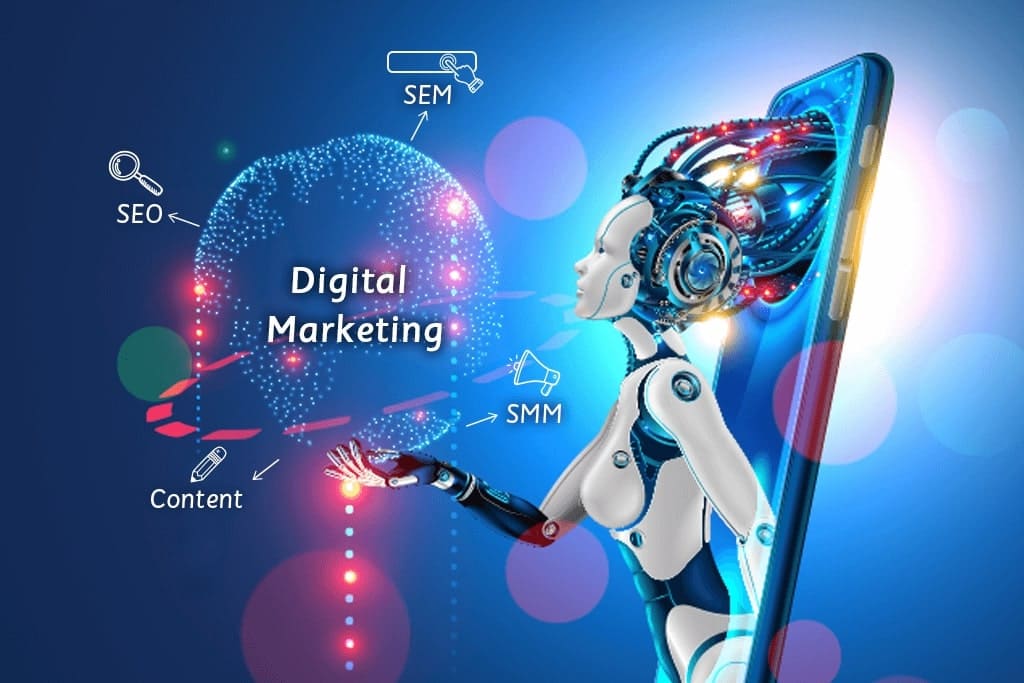Artificial Intelligence (AI) has revolutionized many industries, and online marketing is no exception. From automating routine tasks to providing deep insights into consumer behavior, AI tools have become indispensable for modern marketers. This blog explores the various ways AI is utilized in online marketing, highlights top AI tools in marketing research, and provides examples of AI in action. We’ll also discuss the pros and cons of AI tools in digital marketing and offer considerations for marketers before giving these tools access to their Google accounts.
How AI is Used in Online Marketing
1. Personalization
AI algorithms analyze consumer data to deliver personalized experiences. For instance, e-commerce platforms use AI to recommend products based on browsing history and past purchases, increasing conversion rates.
2. Predictive Analytics
AI helps predict future trends by analyzing past data. Marketers can use these insights to make informed decisions about inventory management, campaign timing, and content creation.
3. Customer Segmentation
AI can segment customers into distinct groups based on behavior, demographics, and preferences. This segmentation allows for more targeted and effective marketing campaigns.
4. Content Creation
AI tools can generate content, from social media posts to entire articles. While they might not replace human creativity, they can assist in scaling content production.
5. Chatbots
AI-powered chatbots provide instant customer support, improving user experience and freeing up human resources for more complex tasks.
Examples of AI in Marketing
1. Amazon’s Recommendation Engine
Amazon uses AI to analyze customer behavior and recommend products, which significantly boosts sales and customer satisfaction.
2. Netflix’s Content Recommendations
Netflix uses AI to recommend shows and movies based on viewing history, keeping users engaged and increasing subscription retention rates.
3. Starbucks’ Personalized Marketing
Starbucks uses AI to send personalized offers and recommendations to customers through their mobile app, increasing customer loyalty and sales.
4. Uber
Implements surge pricing algorithms to adjust fares based on real-time demand.
5. Airbnb
Uses AI to set dynamic pricing for listings based on demand and market conditions.
6. Siri (Apple)
Assists in optimizing content for voice searches through natural language processing.
7. Alexa (Amazon)
Helps businesses create voice-enabled experiences for their customers.
8. Pinterest Lens
Uses AI to recognize objects in images and suggest related content.
9. Zendesk Chat
Offers AI-driven chatbots that assist with customer support.
Pros and Cons of AI Tools in Digital Marketing
Pros
- Efficiency: Automates repetitive tasks, allowing marketers to focus on strategic planning.
- Accuracy: Provides data-driven insights, reducing the risk of human error.
- Personalization: Delivers personalized experiences, improving customer satisfaction.
- Scalability: Allows businesses to scale their marketing efforts without a proportional increase in resources.
Cons
- Cost: High initial investment for advanced AI tools.
- Complexity: Requires technical expertise to implement and manage.
- Privacy Concerns: Handling vast amounts of consumer data raises privacy and security issues.
- Dependence: Over-reliance on AI can stifle creativity and human intuition.
Considerations for Digital Marketers Before Giving AI Tools Access to Google Accounts
- Security: Ensure the AI tool has robust security measures in place to protect your data.
- Compliance: Verify that the tool complies with relevant data protection regulations (e.g., GDPR, CCPA).
- Transparency: Choose tools that provide clear insights into how they use and process your data.
- Reputation: Research user reviews and industry reports to ensure the tool is reliable and well-regarded.
- Support: Ensure the tool offers adequate customer support to assist with any issues that may arise.
Conclusion
AI has transformed online marketing, offering tools and insights that were unimaginable just a few years ago. While the benefits are substantial, marketers must carefully consider the security and compliance aspects before integrating these tools into their workflows. By leveraging AI effectively, businesses can achieve unprecedented levels of personalization, efficiency, and customer engagement.


